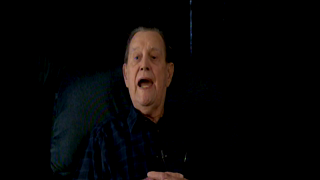2:57 | While stationed in Iceland, Clifford Wilford remembers thinking that his infantry would be attacked due to their proximity to the Germans stationed in Norway. They were set on high alert on in one instance, not knowing whether they were soon to face combat.
Keywords : Iceland cold conditions volcanic attack Norway German army enemy protect Lend-Lease

Clifford Wilford recalls the boat ride out to Fort Slocum off of the coast of New York. Sailing out of this precarious area, torpedoes were a real danger for all of the ships in the convoy.
Clifford Wilford remembers some of his infantry's encounters as they navigate through the French countryside. While in combat in France, they broke through the main line of German resistance. Continued in Part 2.
Clifford Wilford's infantry faced a number of challenges while fighting in Northern France. While facing combat in chateaus around Angiers, France, Wilford remembers the sight of a pile of dead German soldiers that has stuck with him for 70 years. Continued from Part 1.
As Clifford Wilford's infantry diverts past Paris, they encountered a few additional obstacles that they had to overcome. Wilford had to drive a Jeep across an open battlefield while his commander mapped out the locations of German artillery stations, risking fire from incoming mortar shells.
Clifford Wilford remembers when the Allies had finally liberated France from the German soldiers. During the Battle of the Bulge, they had to deal with the complications of inclement weather.
After an injury sustained in battle, Clifford Wilford found himself in the hospital out for a few days. The feeling of losing long periods of time due to sustained medical absence can leave you disoriented upon return. After his return, his company set out to capture Frankfurt, Germany.
Clifford Wilford remembers a very close encounter that led to his near-death. By slim chance, he moved locations during the night just before his previous location took a direct hit.
Clifford Wilford remembers patrolling during an artillery firing to find out why the shells were coming in so accurate. What they found was a big surprise to them.
In what was supposed to be a routine sweep of a cellar in Metz, Germany, Wilford faced one-on-one combat with a German soldier armed with a concussion grenade. The quick instincts that defined his actions in that moment are what saved his life.
Clifford Wilford recalls when he was first diagnosed with his Post-Traumatic Stress Disorder, a lot of which was attributed to his experiences with concentration camps. Seeing the inhumanity of those camps has not left him even after all these years.
Clifford Wilford recites a song from wartime that captures the essence of his experience in Europe.